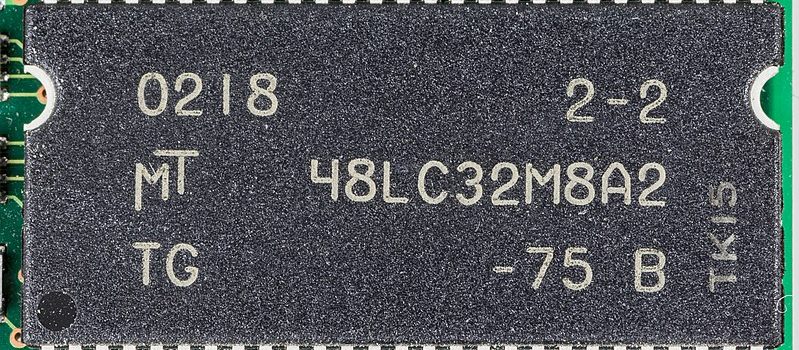
In a move that escalates the ongoing tech trade tensions between the United States and China, the Chinese government has implemented a ban on the purchase of certain Micron chips. Citing cybersecurity threats as the reason, China’s decision comes as a response to previous U.S. sanctions that restricted the purchase of Chinese chips and the export of high-performance solutions to China. This latest development reflects the growing strain in the technology sector between the two global powerhouses.
China’s Cybersecurity Concerns: The China Cyber Administration has instructed companies classified as “key information infrastructure” to cease buying Micron processors. These industries include telecommunications, energy, transportation, finance, defense, and other sectors deemed critical to national interests. While the exact nature of the cybersecurity threat posed by Micron chips has not been explicitly stated, Chinese authorities reference a 2016 cybersecurity law that covers a wide range of issues, leaving room for interpretation.
Micron’s Presence in China and Anticipated Challenges: Micron, a prominent U.S. semiconductor company, has been operating factories in China for over 16 years. The country serves as Micron’s third-largest market, accounting for 10.7% of its annual revenue in 2022. The company had already anticipated potential difficulties in China, as highlighted in its last annual report. Micron acknowledged the threat of increased competition arising from substantial investments made by the Chinese government and state-owned entities in the semiconductor industry. These investments aim to support China’s national policy objectives and could potentially hinder Micron’s ability to effectively compete with Chinese counterparts.
U.S. Response and International Cooperation: The U.S. Department of Commerce has stated that it is actively engaging with Chinese authorities to communicate the U.S. position regarding the ban. It also intends to collaborate with key allies to address the market distortions in the memory chip industry caused by China’s actions. The response from the U.S. government highlights the significance of the semiconductor market and the importance of safeguarding fair trade practices and market competition.
Consequences and Future Implications: The ban on Micron chips by China marks another significant development in the ongoing trade tensions between the United States and China. The technology sector, being a critical aspect of both countries’ economies, is increasingly becoming a focal point for geopolitical disputes. As restrictions on technology trade continue to intensify, it could lead to fragmentation in the global tech industry, affecting companies, consumers, and innovation worldwide.
Conclusion: China’s ban on the purchase of certain Micron chips in response to alleged cybersecurity threats further exacerbates the already strained trade relations between the United States and China. With the U.S. government actively engaging with Chinese authorities and seeking cooperation with international allies, the hope is to address market distortions and ensure fair competition in the memory chip industry. As the situation unfolds, the global tech industry watches closely, as the implications of these trade tensions could have far-reaching consequences for innovation, market dynamics, and international relations in the technology sector.

 Get in Touch
Get in Touch 


